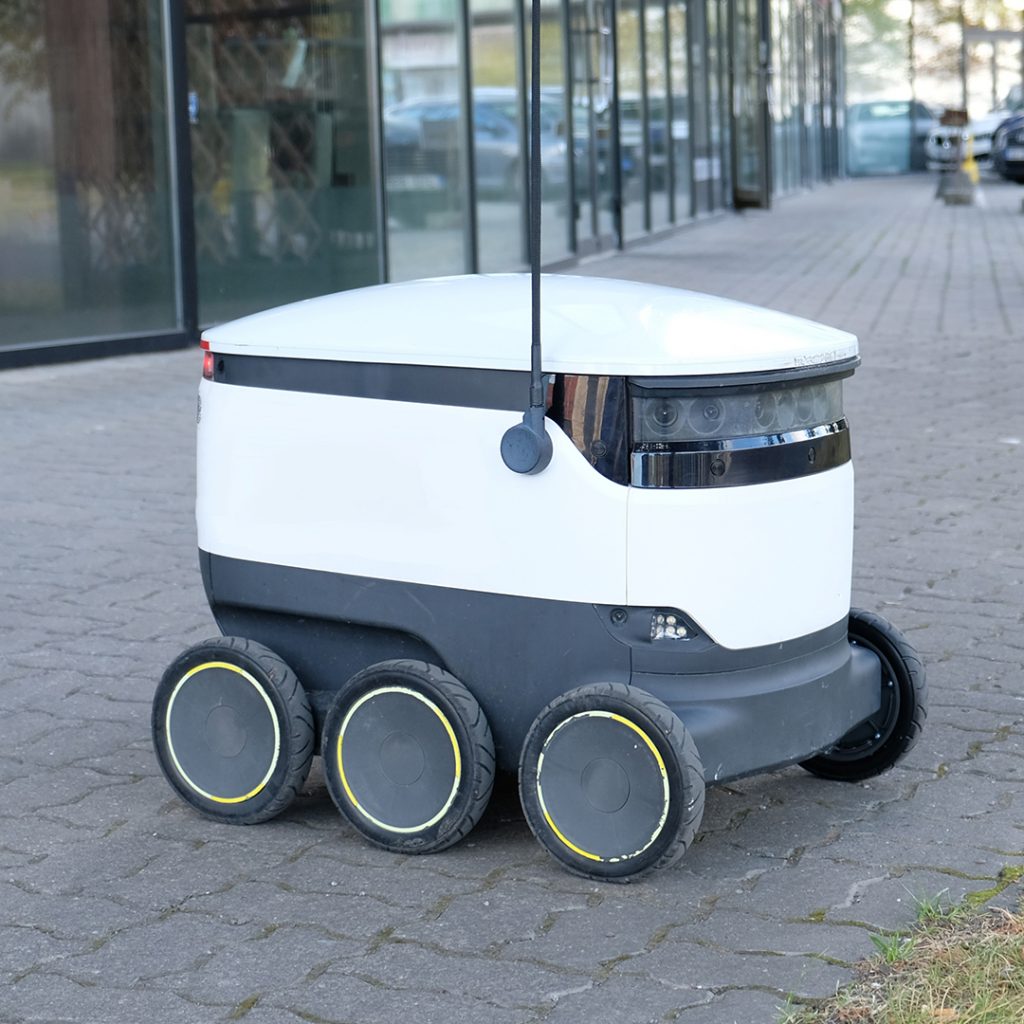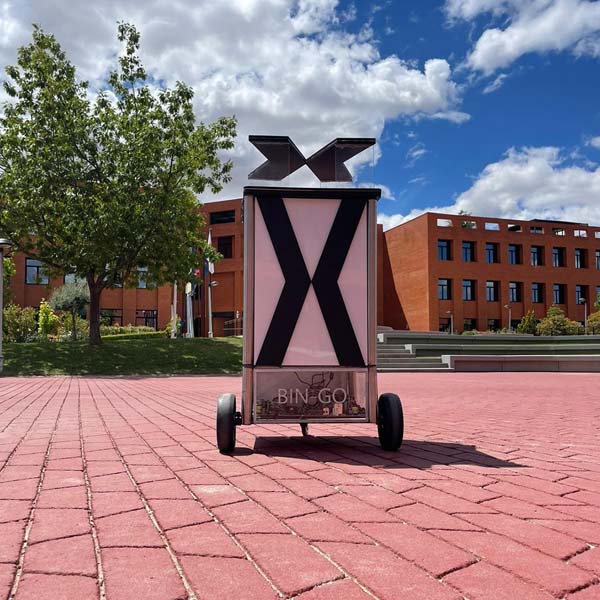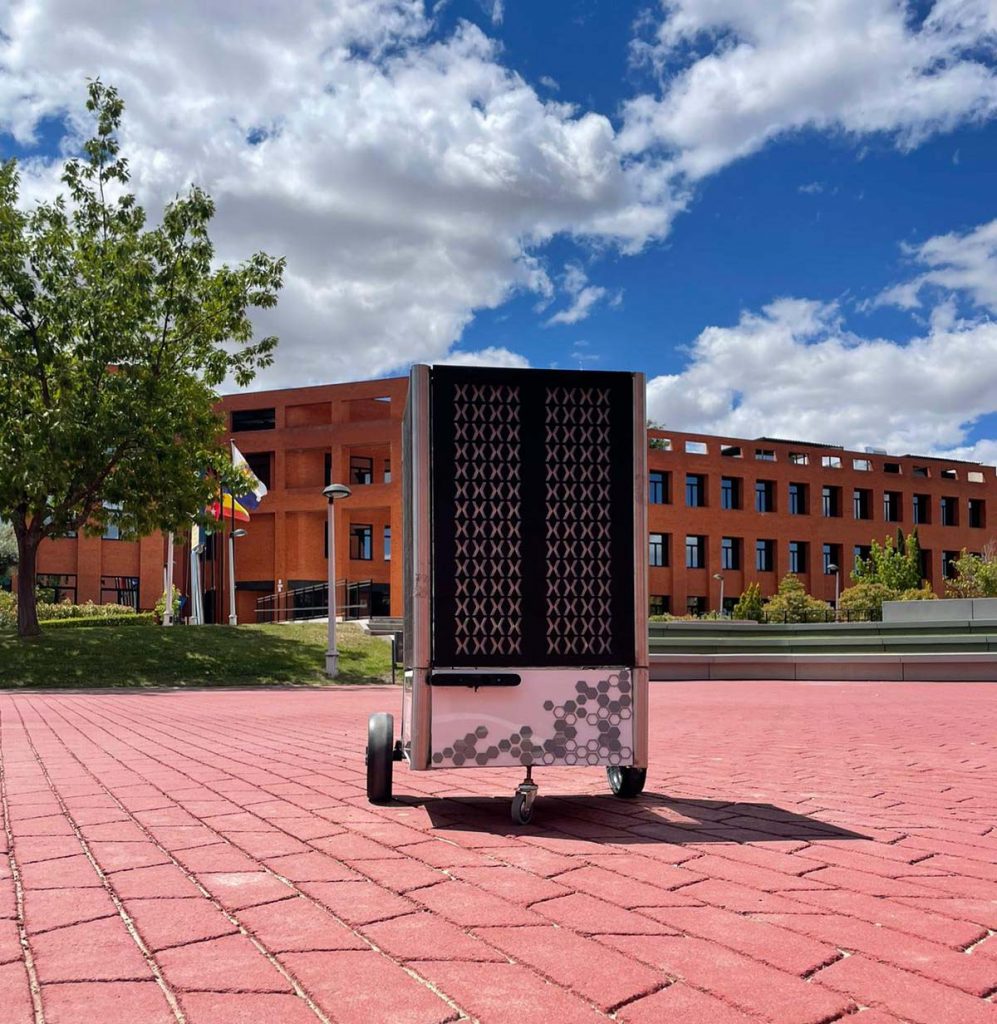
They might not be the most popular student on campus, but self-driving cars are currently one of the top subjects of study at numerous universities around the world. At Alfonso X el Sabio (UAX), for example, they are at the heart of a project that aims to transform mobility on campus and improve inclusion within it.
The main element in this initiative is an intelligent Rover, and the setting is the UAX campus in Villanueva de la Cañada (Madrid). This autonomous vehicle travels around the facilities with the main objective of serving as a guide to students and visitors with sensory disabilities. The project is part of another more ambitious one that aims to create a “Digital Twin” of the Alfonso X el Sabio University campus. It has been conceived and executed by a multidisciplinary team made up of students of Industrial Design Engineering, Electronic Engineering and Mechanical Engineering, in collaboration with experts from a company specialized in digital services. This initiative is not limited to collecting data, but also seeks to analyze and standardize information on a large space covering over 10 hectares. In this way, it offers a unique perspective to improve resource management and ensure campus sustainability, transforming the way logistical and environmental challenges are addressed within educational institutions.
Ramón Miranda, technology innovation officer for Europe at Avanade, describes this project as a bridge between academia and the business world. It highlights how this initiative becomes a learning space for young innovators, following the UAXmaker methodology. In this way, students can face the challenge of dealing with real problems that companies bring up. This encourages collaboration and teamwork, and makes it possible to connect business needs with practical education.



This is just one example of a global trend in educational institutions around the world. University work on autonomous vehicles goes beyond mere research and experimentation. The Nebrija University, for example, presented a self-driving vehicle at the Villaverde Sandbox (Madrid), while at the Canadian University in Dubai, students are contributing to the development of a solar-powered autonomous car. These projects are advancing autonomous technology while redefining the educational experience by offering students tangible opportunities to apply their theoretical knowledge in real-world scenarios.
These advances not only have implications in the academic field; they are also emerging as drivers of change in society and industry. The intersection between academia, technology and the business world is forging a new path towards innovation, sustainability and an education system that is more oriented to practical application.
Furthermore, these initiatives predict a future where autonomous mobility not only changes the way we move, but also the way we live and work, demonstrating the transformative potential of interdisciplinary cooperation in the university context.